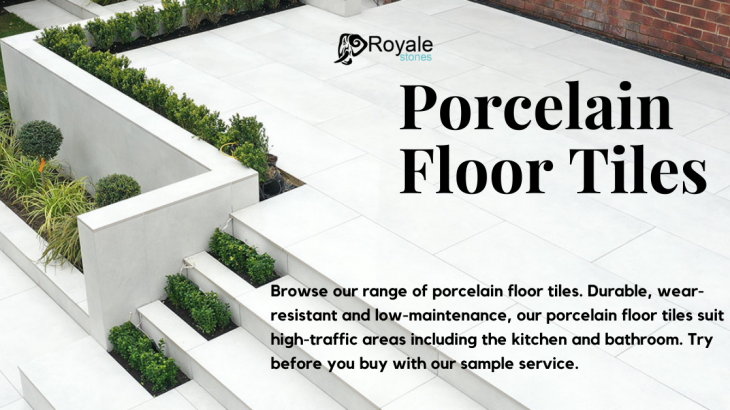Porcelain floor tiles are becoming more and more popular among both homes and interior designers because they achieve the perfect balance of style, sturdiness, and ease of care. These multipurpose tiles are durable and able to withstand heavy foot activity as well as a variety of environmental conditions. There is an infinite number of ways in which porcelain floor tiles may be used to enhance your living spaces, whether you want to create a simple and beautiful environment or wish to make a strong and modern statement.
The appeal of Porcelain Floor Tiles
Porcelain floor tiles can imitate the appearance of natural materials like stone, wood, or concrete, while also providing greater performance and endurance. This is one of the most significant advantages of porcelain floor tiles. These tiles are available in a broad variety of colours, textures, and patterns, which enables you to obtain the look that you want for your residential area at any given time.
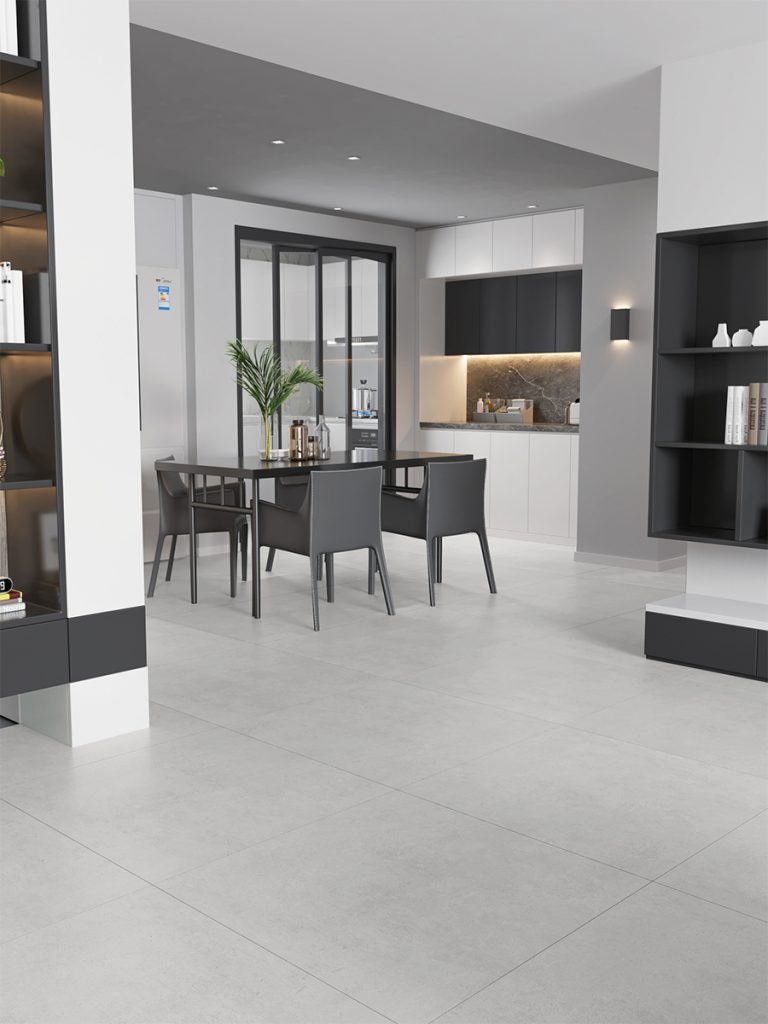
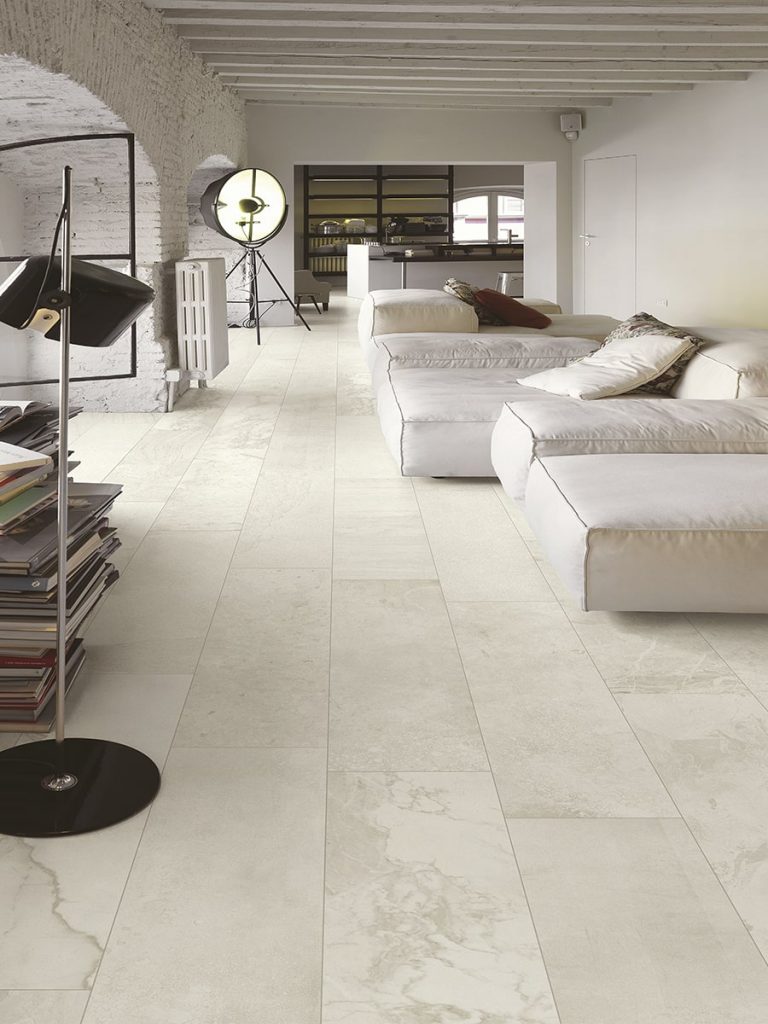
Longevity and Lack of Need for Maintenance
The excellent durability and resilience to wear and tear that porcelain floor tiles possess have earned them a well-deserved reputation. These tiles, in contrast to genuine stone or wood, are less likely to be damaged by scratches, stains, and dampness. As a result, they are an excellent option for high-traffic areas such as kitchens, bathrooms, and entryways. To add, these porcelain tiles are simple to clean and maintain; all that is required to keep them looking perfect is frequent sweeping or mopping.
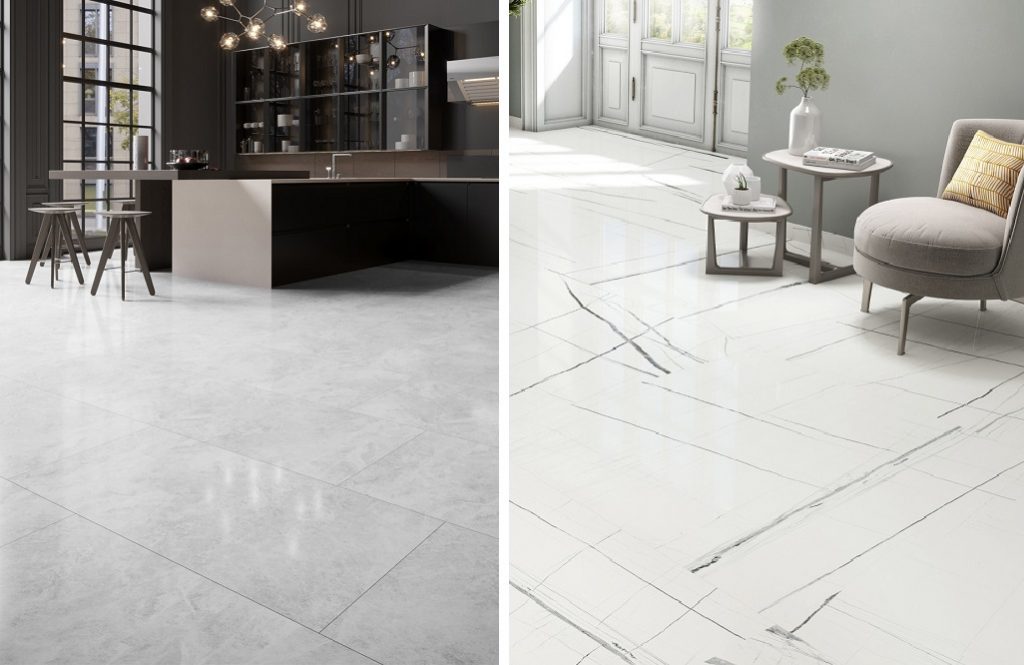
Flexibility and a Variety of Design Options
It’s amazing how many design options porcelain floor tiles offer; they range from more conventional and rustic patterns to more contemporary and sleek shapes. Should you want the warmth and appeal of a wood-like finish or the crisp lines of a minimalist design, there is a porcelain tile substitute that may readily meet your needs. These tiles can also be arranged diagonally, herringbone-style, or in other patterns to provide visual interest and depth to your flooring.
Applications: Both Indoors and Outside
The use of porcelain floor tiles is not restricted to the confines of interior environments. Because of their resistance to frost and their low water absorption capabilities, these tiles are also appropriate for use in outdoor spaces such as decks, patios, and areas around pools. In damp situations, the anti-slip surface finish of many porcelain tiles provides secure footing, making them a practical alternative for both indoor and outdoor installations. Porcelain tiles are a popular choice for construction projects.
Choosing the Appropriate Tile for Your Porcelain Floor
Considerations for selecting porcelain tiles for your project include the size of the space, the desired aesthetic, and the volume of foot traffic. Bigger tiles might provide a sense of more space, while smaller tiles could be more suited to busy or intricately designed areas.
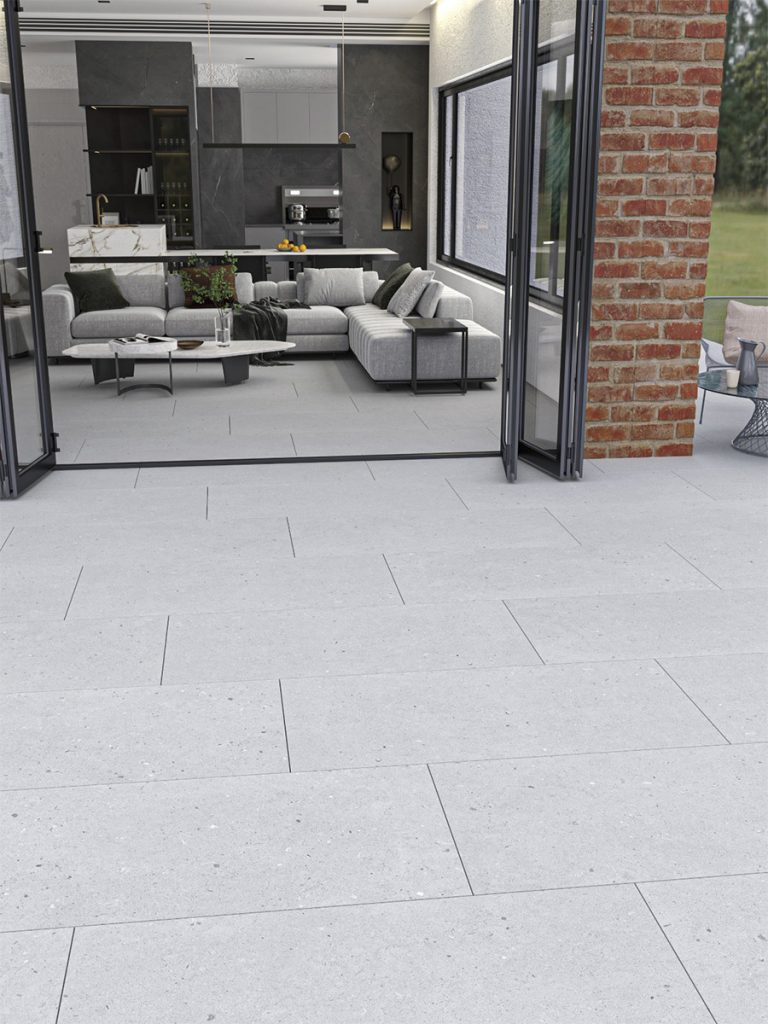
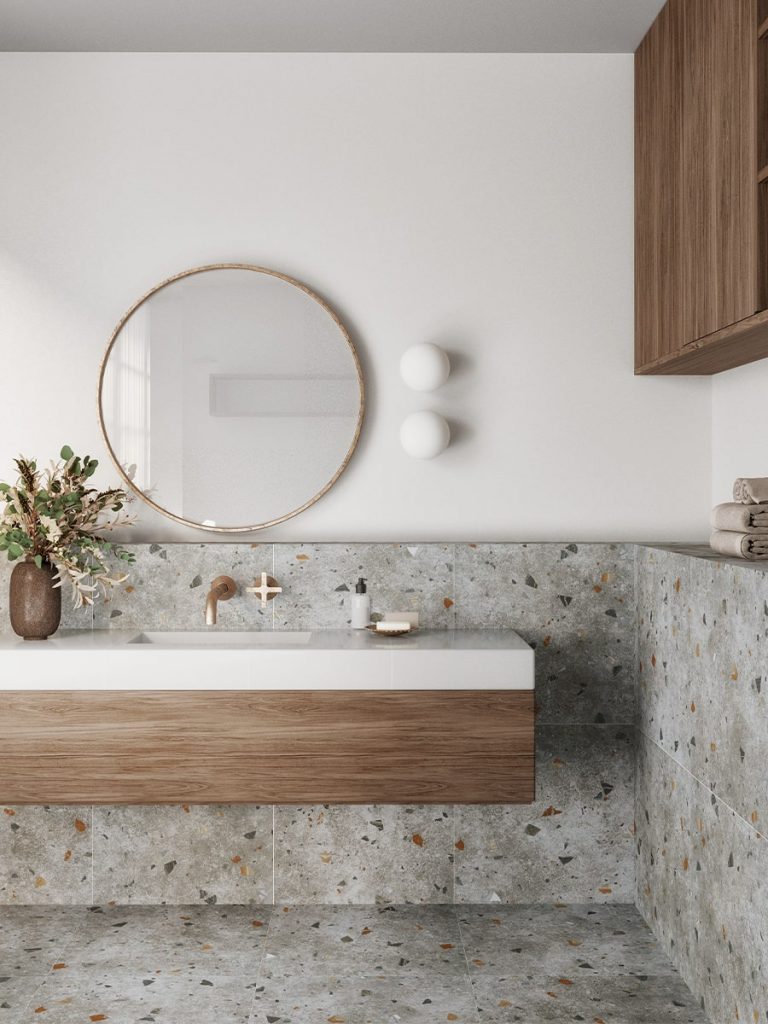
Installation and Maintenance Tips and Advice
Correct installation of your porcelain floor tiles is crucial to their life and usefulness. It is best to get in touch with a qualified installer who works with porcelain tiles for a faultless and long-lasting installation. The installation will be done by this. Regular maintenance, including sweeping or vacuuming your porcelain floors and sometimes wiping them with a damp mop, can help guarantee that they look their best for many years to come.
FAQ’s (Frequently Asked Questions)
Q-1 How do porcelain floor tiles compare in cost to other types of flooring options?
Ans- Porcelain tiles are typically priced competitively compared to other flooring options such as ceramic tiles, natural stone, and hardwood. While they may be more expensive than vinyl or laminate initially, their durability often offsets higher upfront costs in the long term.
Q-2 Are porcelain tiles suitable for installation in bathrooms and kitchens, considering their durability and maintenance?
Ans- Porcelain tiles are highly suitable for installation in bathrooms and kitchens due to their excellent durability and resistance to moisture. They are less prone to staining and water damage compared to materials like hardwood or laminate. Additionally, porcelain tiles are easy to clean and maintain, making them ideal for high-traffic areas prone to spills and moisture.
Q-3 What are some potential drawbacks or limitations of using porcelain floor tiles in residential settings?
Ans- However, there are some potential drawbacks to consider when using porcelain floor tiles in residential settings. One significant factor is their hardness, which can make them less comfortable to stand on for long periods, especially in areas where people frequently stand, such as kitchens. Additionally, the installation process for porcelain tiles can be more labor-intensive and costly compared to other flooring options. Moreover, if not properly installed, porcelain tiles can be prone to cracking under heavy impact.
In summary, while porcelain floor tiles offer durability, moisture resistance, and ease of maintenance, potential drawbacks include their hardness, installation complexity, and higher initial cost compared to some other flooring materials.
Conclusion
Porcelain paving tiles are an amazing choice for both homeowners and interior designers as they offer the perfect combination of style, robustness, and low maintenance needs. These tiles offer the flexibility and ability to mimic the look of natural materials to turn any living space into an exquisite and useful haven. Porcelain floor tiles offer countless options for improving the visual attractiveness of both your indoor and outdoor areas, whether you choose a dramatic or kind of simple presentation. Utilizing the classic beauty and useful benefits of porcelain floor tiles can help you design a living space that reflects your taste and meets your utilitarian needs, contrary to popular belief.
